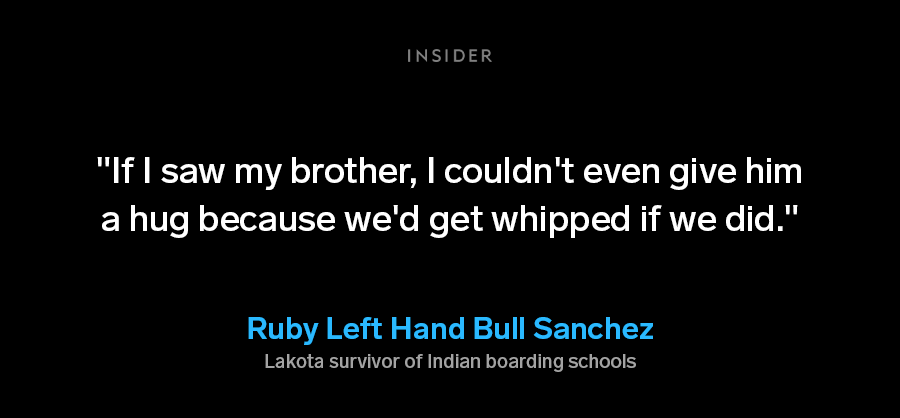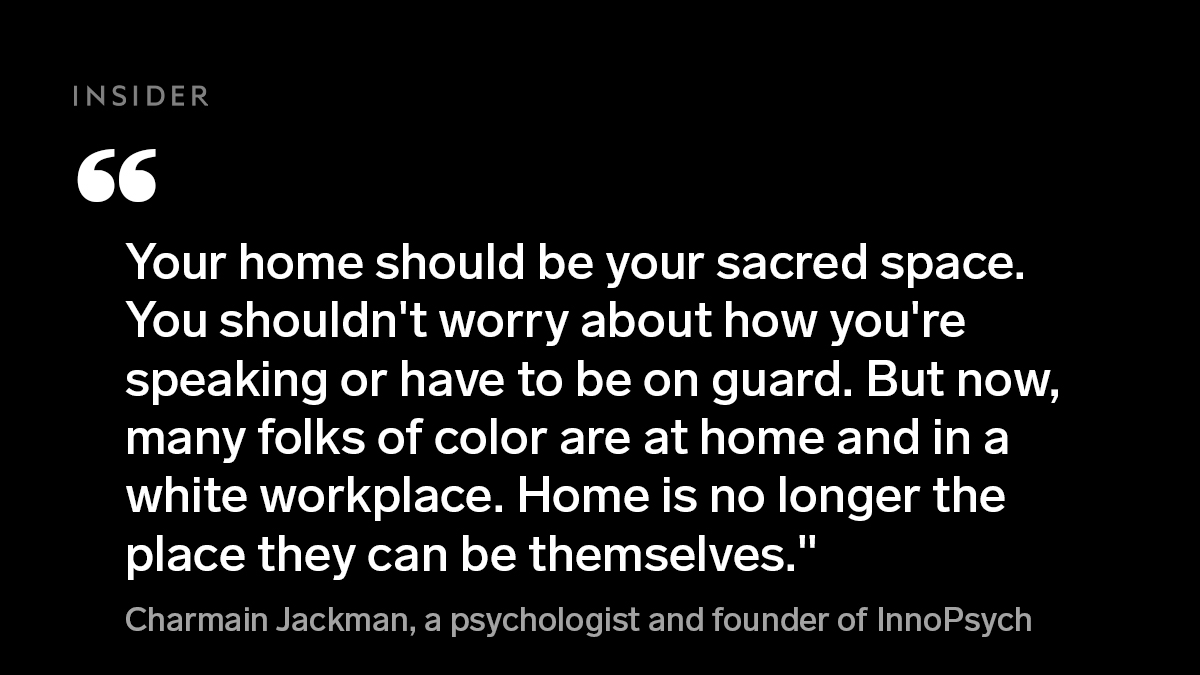
Burial sites of hundreds of Indigenous children were found at former Indian boarding schools across Canada.
Natives say there may be even more in the US, discoveries are only the “tip of the iceberg.”
insider.com/lakota-sioux-w…
Natives say there may be even more in the US, discoveries are only the “tip of the iceberg.”
insider.com/lakota-sioux-w…
Ruby Left Hand Bull Sanchez, who was taken from her mother as a child and sent to a boarding school, hasn’t stopped sobbing since the news broke about Canada’s unmarked graves.
Sanchez knows there are more lost children out there, and in the US as well.
insider.com/lakota-sioux-w…
Sanchez knows there are more lost children out there, and in the US as well.
insider.com/lakota-sioux-w…
Sanchez and her siblings were sent to the St. Francis Rosebud Sioux Indian School in South Dakota.
There, children were beaten, molested and raped night after night by the priests and nuns that ran it.
insider.com/lakota-sioux-w…
There, children were beaten, molested and raped night after night by the priests and nuns that ran it.
insider.com/lakota-sioux-w…

All over the US, at the 357 Indian boarding schools in places like Oklahoma, Arizona, New Mexico, and dozens more, Native kids were beaten black and blue for the smallest infractions.
insider.com/lakota-sioux-w…
insider.com/lakota-sioux-w…
Sanchez said her first crime in the eyes of pseudo-pious pedophiles was that she was born Sicangu Lakota, a Native American tribe.
By her second day, the crime was that she spoke her Lakota language in the presence of a haggard nun.
insider.com/lakota-sioux-w…
By her second day, the crime was that she spoke her Lakota language in the presence of a haggard nun.
insider.com/lakota-sioux-w…

A child speaking their language would have a needle shoved through their tongue or be made to stand in front of the class where a nun or priest would smack it with a wooden ruler.
Sanchez said she doesn't speak Lakota anymore because it's too traumatic.
insider.com/lakota-sioux-w…
Sanchez said she doesn't speak Lakota anymore because it's too traumatic.
insider.com/lakota-sioux-w…

In the middle of the night, while children pretended to be asleep, the door would suddenly creak open, Sanchez recalled.
It would be a priest walking in to rob a child of their innocence.
After the priests slithered in, the nuns were on their way.
insider.com/lakota-sioux-w…
It would be a priest walking in to rob a child of their innocence.
After the priests slithered in, the nuns were on their way.
insider.com/lakota-sioux-w…

The incinerator that once sat outside the school was "human size," but Sanchez never witnessed what it was used for.
She likens the imagery to Auschwitz and Hitler.
Reservations were first established as prison camps, predating the Holocaust.
insider.com/lakota-sioux-w…
She likens the imagery to Auschwitz and Hitler.
Reservations were first established as prison camps, predating the Holocaust.
insider.com/lakota-sioux-w…

The children who survived the schools became the adults left to medicate the pain away — managing their trauma as best they could for the rest of their lives.
Part of Sanchez's therapy is traditional jewelry making.
insider.com/lakota-sioux-w…
Part of Sanchez's therapy is traditional jewelry making.
insider.com/lakota-sioux-w…
Ten Indigenous kids — buried near a residential school in Pennsylvania — were exhumed a few days ago and returned to their community where a ceremony was held on the Rosebud Rez.
For Sanchez, that means they can finally move on to the next place.
insider.com/lakota-sioux-w…
For Sanchez, that means they can finally move on to the next place.
insider.com/lakota-sioux-w…

However, thousands more children are "still stuck here."
With more than 160 "unmarked" graves uncovered in Canada this week, the search continues.
insider.com/lakota-sioux-w…
With more than 160 "unmarked" graves uncovered in Canada this week, the search continues.
insider.com/lakota-sioux-w…
• • •
Missing some Tweet in this thread? You can try to
force a refresh









